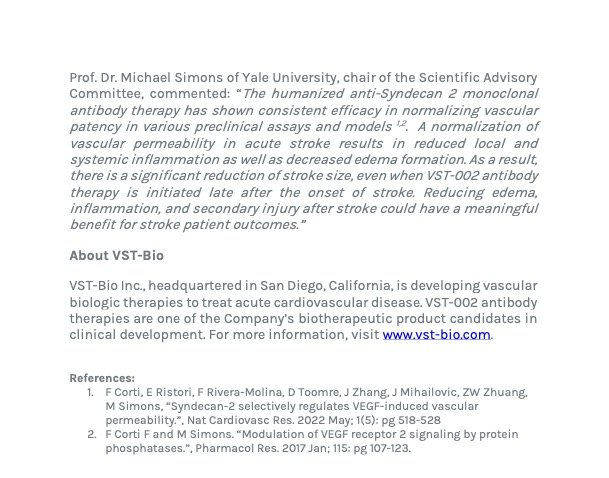News, Media & Awards
Read articles, news, company updates & featured insight
February 9th 2023 - American Heart Association - International Stroke Conference, Dallas.
Dr.Corti (Yale Cardiovascular Research Center, Yale University) presented the results of the non-clinical studies using a single bolus of VST002 in the treatment of acute ischemic stroke at the AHA - ISC conference in Dallas.
The effects of anti-Syndecan 2 antibody therapy to restore (VEGF-associated) vascular leakage (vascular hyperpermeability) have been analyzed by the CardioVascular Research Laboratory of Yale University. Antibody binding to the Syndecan-2 membrane protein in the vasculature was shown to reduce (and even normalize) VEGF-induced vascular leakage and led to a significant reduction of stroke-related injury.
The specific humanized antibody in VST-Bio’s disease models was shown to bind the Syndecan 2 surface protein and regulate the vascular patency without affecting any other vascular function, including blood clothing (hemostasis) and vascular contraction (vasomotor function) and may provide an excellent avenue to treat acute ischemic stroke, in addition to the conventional blood cloth-dissolving therapy (thrombolytic therapy, including rtPA).
VST-Bio Chief Executive Officer Eric Duckers, MD PhD, said, “The VST-002 human antibody therapy is being initially developed to treat ischemic stroke patients (Cerebrovascular Accident – CVA) who present late at the medical centers, when conventional therapy is no longer effective. The current standard-of-care is thrombolytic therapy to resolve blood clots, but unfortunately is only effective when given within the first few hours of stroke, leaving 90% of all patients ineligible or non-responsive to conventional treatment. VST-002 may offer an alternative path to preserve brain function and improve recovery after ischemic stroke”.
“In light of these positive data on our humanized antibody therapy, we expect to meet our internal timeline to complete our submission to the FDA for our first indication for Late-Stroke, and to initiate clinical trials in 2024.”



